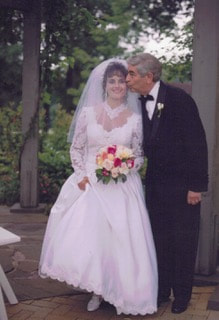Authored by Julie Schmit, MA, Energy Healer and Relationship Guide
I just attended my first funeral during the current pandemic; not as a result of COVID-19, but the timing of the death made it truly challenging, nonetheless. It was my father’s funeral and it was conducted virtually, on Zoom. He was an elderly man and had lived a full life, but that, of course, does not necessarily reduce the grief of his loved ones. Although we tried as best we could to preserve and enact the customary funeral rituals of my tradition on-line, the experience, in several ways fell short, and caused me to reflect on the meaning of these rituals.
Some of the most profound elements of a funeral for me, such as the procession to the graveside and the act of family members taking turns shoveling dirt onto the grave, we had to do without. I also sorely missed the hugs and tactile reassurances one craves from extended family members during a time such as this.
There were tears, prayers, songs and stories, of course. There were also elderly people struggling with connecting online who were assisted by younger, tech-savvy relatives. That brought laughter and some comic relief. People who wouldn’t have been able to attend the funeral due to work obligations, or who lived too far away to travel, were able to take part through their Zoomed-in phones and laptops. That was an unexpected blessing.
But the omission of key features of this all-important ritual at the end of a loved one’s life caused me to contemplate the importance of rituals, especially during this time of social distancing and inability to physically be together.
According to scholars, a ritual is a ceremony that is a time-honored act whose purpose it is to transform those who take part in them. They occur in every culture on earth suggesting their purpose is tied into our humanity. Rituals move participants from one position in life to another, from pre-birth to birth, from being single to marriage, from being among the living to being among the dead. As such, rituals have a beginning, a middle and an end, much like a journey. The end result is having traveled and landed in a place that could not have been achieved without the ritual.
Ingredients for a Ritual
In order to perform a ritual, people need to slow down. This is a time for reflection and re-centering oneself. The essential ritual connection with oneself and other people can only be achieved when one has slowed down the mind and body. Oftentimes this is aided by a collective silence.
Entering into a sacred space, a place that feels safe and supported is also a feature. There may be special music, incense burning and ritualized gestures of support from friends and family.
Ritual themes and intentions include formalized greetings and farewells, the giving of blessings, the invocation of healing, the answering of questions, or the honoring of a cycle, such as welcoming a new moon or acknowledging another year of sacrifice for collective goals. Enacting the ritual might include a slow procession, lighting a candle, sharing a poem or an inspirational reading, sprinkling water, or offering flowers. The closing of a ritual often involves a celebratory honoring, often done by sharing food, fond memories, toasts and gratitude to those who assisted in enacting the ritual.
The final step is a re-orientation to ordinary reality, as those who took part in the ritual, transition back into their normal lives, all the while reflecting on their experience.
I believe that paying attention to the essential features of rituals will help us carry forward into our brave new, pandemically-inflicted world, the power of ritual to transform our lives. If you’re looking for more help and information in creating your own ritual, I have listed a couple of my favorite books on this subject, below. Best wishes creating something meaningful and purposeful during these unprecedented times we’re in.
Resources for Ritual
- Ritual: Power, Healing and Community by Malidoma Patrice Somé
- The Joy of Ritual by Barbara Biziou
- Sacred Circles: A Guide to Creating Your Own Women’s Spirituality Group by Robin Deen Carnes and Sally Craig
- Creative Grieving: A Hip Chick’s Path From Loss to Hope by Elizabeth Berrien


 RSS Feed
RSS Feed